If you’re looking for last-minute stocking stuffers or New Year reads, Providence has you covered. We asked writers and fellow-travelers for their favorite 2023 reads–or screenings. Enjoy a Yuletide feast
Phil Klay:

Andrea Barrett, Natural History — Barrett, one of America’s finest short story writers, is well known for her beautiful evocations of the work of science in earlier generations—less remarked upon is the brilliant way in which she weaves in the history of warfare and it’s influence upon individual lives, communities, and scientific theories. The military historian, in particular, will enjoy “The Regimental History,” from this book, about a Civil War veteran’s attempts to pin down the reality of a battle he survived, and which is certain is falsely recorded.

Matt Gallagher, Daybreak — Gallagher is a US Army veteran of Iraq who has penned some fantastic journalism for Esquire about the Ukraine War. His new novel and tremendously compelling novel centers around about two American military veterans who head to Ukraine in the hopes of finding the clear moral purpose they never were able to find in their wars, or in their civilian lives after coming home.
Editor’s note: Do yourself a favor and pick up Klay’s own books, including the short story collection Redeployment, his debut novel Missionaries (see providencemag.com interview w/ Klay here) , and Uncertain Ground: Citizenship in an Age of Endless, Invisible War



Eric Patterson

“In terms of books, focused on Christmas from Providence writers, there’s the Tim Demy book Silent Night, Silent Guns about the 1914 Christmas truce. It’s available from Stone Tower Press, or Amazon (and was reviewed at providencemag.com here). There’s also my own advent devotional, Walking Toward Christmas, which is available as a free Kindle book or hardcopy for a small charge at Amazon.
When it comes to books with Providence themes, of course, at the top of my giving list this year is my new book A Basic Guide to the Just War Tradition: Christian Foundations and Practices. Also, at the beginning of 2023, the edited volume, Just War and Christian Tradition, just came out and features many Providence writers are in, including Mark Tooley, Daniel Strand, Nigel Biggar, myself, and Daryl Charles.
Lastly, the new biography, George Marshall: Defender of the Republic, by David Roll, was one of my best reads of the year.
—
Kevin Mullaney
We, by Yevgeny Zamyatin. It is the best dystopian novel from the 20th century. It captures well the concept that government is always an attempt to answer the question: what does it mean to be human? After you read this, you will realize that Ayn Rand (Anthem) and George Orwell (1984) both were heavily influenced by (plagiarized) Zamyatin. Zamyatin’s work is considerably more artful and philosophical. The state mathematician realizes that at the center of every I is i (square root of -1 = the irrational and non-reducible).
Nigel Biggar
Jeff Fynn-Paul, Not Stolen: The Truth about European Colonialism in the New World, A brave, bold, well-informed, and very readable contradiction of the fashionable story that European colonisation [sic] was nothing but a litany of racism, theft, and genocide.
John Masters, The Road Past Mandalay: A very well written classic memoir of the Second World War in India and Burma by a British officer in the Indian Army, who, postwar, became a bestselling historical novelist in the USA.

Film recommendation: Terrence Malick, A Hidden Life (2019): So beautiful, so heart-rending, so tragic, so noble, so faith-ful that it made this Scotsman’s stiff upper lip tremble.

EDITOR’S NOTE: And, because he won’t, I heartily recommend Nigel’s own Colonialism: A Moral Reckoning. Encyclopedic, erudite, extremely well written, and even brave. In it, Biggar tests the indictment that Western Culture broadly, and the British Empire particularly, is nothing but a litany of racism, exploitation, and massively murderous violence. A scrupulously fair moral inquest, Biggar shows us how academic argument is to be done.
J. Daryl Charles

David Corey and J. Daryl Charles, The Just War Tradition: An Introduction, This volume is a blend of history, theology, and political philosophy and traces the development of the just war tradition from its inception nearly two millennia ago to its contemporary expression through leading just war thinkers. The co-authors demonstrate why this rich tradition provides the only framework for evaluating the moral particulars of coercive force.

Timothy Demy and J. Daryl Charles, War, Peace, and Christianity: Questions and Answers from a Just-War Perspective (Crossway), Ranging from the theoretical to the practical, this volume—by means of a question-and-answer format—examines how just war moral reasoning relates to the philosopher, the historian, the statesman, the theologians, the combatant, and the lay person, with a particular emphasis on the just war tradition’s historical development and application to contemporary geopolitical challenges.
Also, a second recommendation for Just War and Christian Traditions (see notes in Eric Patterson’s comments above)
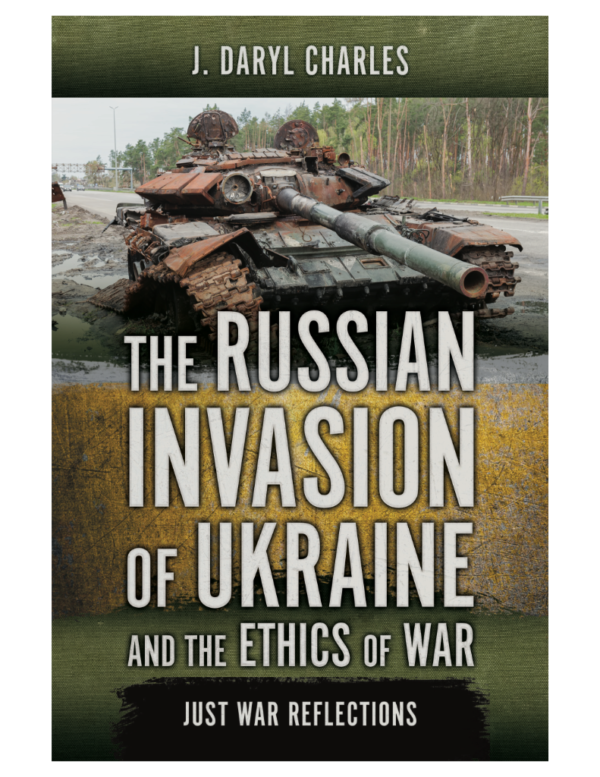
Lastly, J. Daryl Charles, The Russian Invasion of Ukraine: Just War Reflections. Forthcoming from Stone Tower Press, this volume is divided into two parts. Part One consists of 17 essays written by the author between the beginning of the Russian invasion of Ukraine in February of 2022 and the Fall of 2023. Part Two considers the conflict through the lens of the just war tradition and argues that the defense of Ukraine is a moral and military obligation of the West.

Kevin Vallier, All the Kingdoms of the World: On Radical Religious Alternatives to Liberalism. It’s the a clear philosophical critique of religious integralism.
Michael Lamb, A Commonwealth of Hope: Augustine’s Political Thought. Though he offers an Augustine who is more optimistic than I think persuasive, Lamb’s book offers a wealth of insights into an Augustine who is more than “merely” the realist we sometimes make him out to be.
Timothy Demy

The Book at War: How Reading Shaped Conflict and Conflict Shaped
Reading, by Andrew Pettegree. Pettegree, Professor of Modern History at the University of St Andrews is well-known for his books about books. In this work he discusses books on the home front, books on the battle front, authors at war, and books that were bombed, plundered, hidden, and saved. It is a remarkable and
enjoyable read!
James Turner Johnson and the Just War Tradition: Selected Essays, edited by Eric Patterson, Timothy J. Demy. This volume brings together 24 essays and articles of James Turner Johnson allowing readers to find these essay, some previously published and some on unpublished in a single volume of more than 600 pages. The breadth and depth of Johnson’s thought is remarkable and reading these essays, readers will understand why he is one of the seminal contemporary thinkers of the just war tradition.

Tommy of the Darkest Hour: A novel by John Strider Nation. “Reads true to the times” is the comment of a Word War II Spitfire pilot who read this novel of the Battle of Britain and a young Canadian pilot who wants nothing more than to fly and fight. Drawing on Arthurian lore and wartime Britain, the author offers a warm-hearted account of youth, Spitfires, and the tragedy of war.
Kate Toms, Lt. Col, USAF
Justice: What’s the Right Thing to Do? by Michael Sandel. This is an excellent primer on the various frameworks from which individuals and societies discern the crucial concept of justice. Sandel explains the greatest thoughts and minds on social and political philosophy spanning two millennia, but does so in a way that’s engaging, comprehensive and accessible to the lay reader. This book has been and will continue to be a staple in my philosophy classroom.
Joe Chapa

Josh Chin and Liza Lin, Surveillance State: Inside China’s Quest to Launch a New Era of Social Control. In this book, investigative journalists Chin and Lin provide readers with an inside look at how China is using novel technologies–especially machine learning-enabled facial recognition–to control its domestic population and commit acts of cultural genocide against its Uyghur population, giving foreign policy readers an overwhelming sense of how little attention the Chinese Communist Party is likely to pay to principles of international humanitarian law in the case of a large scale conflict.

Kai-Fu Lee, AI Super-Powers: China, Silicon Valley, and the New World Order. Having experienced the tech startup “ecosystem” in both the US and China, Lee provides readers with a comparison of those two environments against the backdrop of the technological and geopolitical competition taking place between the two countries–ultimately, Lee is far more favorable to China than many US readers will be, but even that controversial assessment provides readers with insights they might not find in books written from a more singularly western perspective.
Derryck Green

Reclaiming Israel’s History, by David Brog. In the book, he details Israel’s history, including the fact that the Jewish people had a continual presence in Israel for more than 3,000 years. He also discusses how Jewish migration to Israel didn’t displace the “Palestinians” but also how the Palestinians rejected their own state at least five times. He also has a book called, Standing With Israel.
In God and the Transgender Debate: What Does the Bible Actually Say About Gender Identity, Andrew Walker is very clear that Christians should not use preferred pronouns when engaging with transgender-identified people. The reason is that Christians are called to love their neighbor and not lead them down a destructive path–primarily because people cannot change their gender. We should speak lovingly to them and hopefully allow them to experience who God is and why he created them.
Alan Dowd

I read The Twilight Struggle by Hal Brands—a helpful book in providing ever more nuance to understanding the Cold War, why it was necessary, why it was waged, how it was won, and what we can and cannot glean from it and apply from it to Cold War 2.0.
I also got around to reading The Jungle Grows Back by Robert Kagan. Written in 2019, it is a prescient and timely warning about the need for America and its allies to fight the constant, relentless encroachment of a world bending toward chaos.
Debra Erickson

Amusing Ourselves to Death: Public Discourse in the Age of Show Business and Technopoly: the Surrender of Culture to Technology. Although he wrote before the dawn of the internet age, Postman’s observations about the effect of television on public discourse raise questions about what kind of democracy is possible when politics becomes entertainment. While Postman lays out his take on “the medium is the message” in Amusing Ourselves, Technopoly forms a sequel of sorts, applying his thesis to the early stages of mass computing.
Arthur Holmes, War and Christian Ethics: Classic and Contemporary Readings on the Morality of War, 2nd Ed. An essential collection, Holmes’s selections let historical Christian thought about war, peace, and ethics speak for itself and serves as a useful corrective to reductive claims about Christian views on war. This anthology rewards the careful reader with an understanding of the breadth and nuance of Christians’ reflection on armed conflict in a wide variety of contexts.
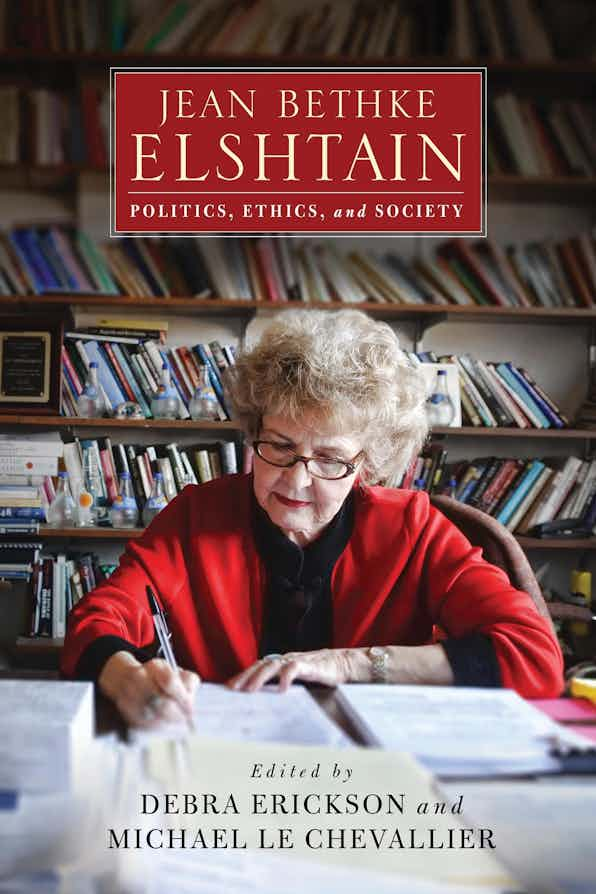
And what the heck, I also recommend Debra Erickson and Michael LeChavallier, Jean Bethke Elsthain: Politics, Ethics, and Society. A decade after her death, it remains [as far as I know] the only full-length secondary work on one of the most influential political theorists and Christian realists of the past half-century. The book is composed of essays by many of Elshtain’s longtime interlocutors along with introductory essays that locate and contextualize her work, making it appropriate for those recently introduced to Elshtain’s thought as well as those who have long appreciated her writing and lament the void left by her passing.
Marc LiVecche

Heisenberg’s War: The Secret History of the German Bomb, by Thomas Powers, is, on the one hand, a close-up look at the Nazi attempts, led by Werner Heisenberg, to produce an atomic bomb. But it’s also a riveting detective story. The mystery it tries to resolve is why, contrary to all expectations at the time, did the Germans never come close to building a bomb, despite Heisenberg’s undoubted genius and status as the world’s preeminent physicists. Historians have long-concluded that Heisenberg simply took too many wrong turns or only half-heartedly pursued atomic power. Powers, sifting through the evidence, offers a more controversial, yet highly plausible, conclusion: Heisenberg did not exercise passive resistance but actually intentionally “killed” the Bomb program. Addressing the obvious question as to why Heisenberg himself never confessed this, Powers reminds us that Heisenberg’s silence might have been the only means possible for him to live among his German neighbors after the war. If true, Heisenberg’s story is one of extraordinary courage and self-sacrifice–and an intriguing examination of national shame, honor, and the difficulty of properly navigating the sometimes tension between loyalty and integrity.

RRR (2022), directed by SS Rajamouli, is an Indian Telugu-language epic period action drama that revolves around fictionalized versions of two historical Indian revolutionaries, Alluri Sitarama Raju and Komaram Bheem. It explores their complicated friendship and their equally complicated fight alongside and against the British Raj. Most importantly, however, is that this a slightly more than three-hour rollicking good time–an admixture of high adventure, over-the-top battle scenes, sing-alongs, and dance that only Indian theatre could provide. Incredibly fun.







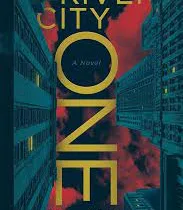
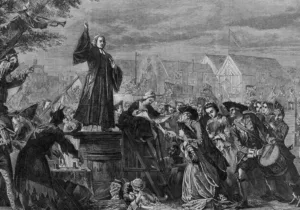
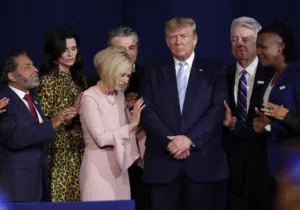

 Sponsor a student for Christianity & National Security 2024
Sponsor a student for Christianity & National Security 2024